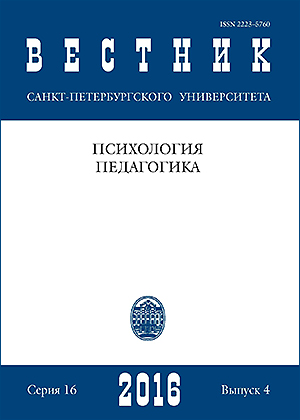Отчуждение моральной ответственности: психологический конструкт и методы его измерения
DOI:
https://doi.org/10.21638/11701/spbu16.2016.402Аннотация
В статье впервые на русском языке описывается введенное А. Бандурой понятие «отчуждение моральной ответственности» (moral disengagement) и восемь механизмов, обеспечивающих его проявление. Даются примеры исследований данного конструкта, проводившихся в разных странах на различных выборках и для разных задач. Описана процедура адаптации англоязычного опросника С. Мур — короткой и длинной шкал отчуждения моральной ответственности (MD-8 и MD-24). Показано, что коэффициент внутренней согласованности шкал альфа Кронбаха и тест-ретестовая надежность находятся на приемлемом уровне. Обе версии шкалы на русском языке могут быть использованы для оценки конструкта отчуждения моральной ответственности в различных задачах. В тексте статьи приведены утверждения из обеих шкал.
Ключевые слова:
отчуждение моральной ответственности, адаптация шкалы, моральное поведение, Альберт Бандура
Скачивания
Библиографические ссылки
References
Well-being and the Dark Triad]. Psikhologicheskie issledovaniia, 2015, vol. 8, no. 43. P. 5. Available at: http://psystudy.ru (accessed: 15.08.2016).
Justice in the Context of Collective Violence. Personality and Social Psychology Bulletin, 2010, vol. 36, no. 8, pp. 1115–1129.
Загрузки
Опубликован
Как цитировать
Выпуск
Раздел
Лицензия
Статьи журнала «Вестник Санкт-Петербургского университета. Психология» находятся в открытом доступе и распространяются в соответствии с условиями Лицензионного Договора с Санкт-Петербургским государственным университетом, который бесплатно предоставляет авторам неограниченное распространение и самостоятельное архивирование.




